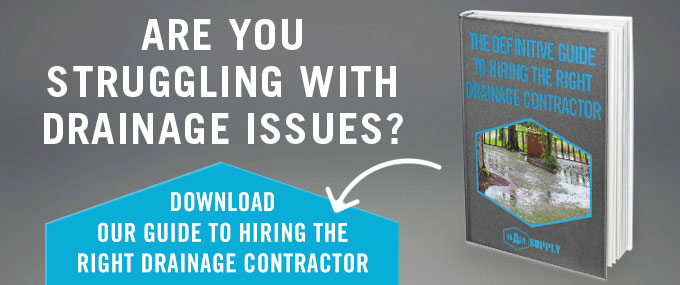Do Pavers Add Value to Your Home in Passaic County, NJ?
Thinking about upgrading your home’s hardscape? For many homeowners, this means utilizing manufactured pavers in order to install patios, courtyards, driveways, walkways and more.
Could this be the right solution for your property? If your ultimate goal is to increase the visual appeal of your landscape while also boosting your home’s value, the answer is yes.
Read on to learn more about how paver stones can add to the value of your property and improve your quality of life.
How do pavers compare to natural stone in terms of quality?
One of the main concerns that people have with paver stones is that they may offer less in the way of quality than their natural stone counterparts. We’re here to put that myth to rest.
While natural stone is extremely beautiful, tough, and durable, manufactured pavers can provide the same benefit to users. When properly engineered by a reliable stone paver manufacturer, each unit will be custom crafted for strength, functionality and esthetics.
Even better, there’s a lot more control in the production of pavers than with natural stone. While there may be inconsistencies in the color, texture, shape, cut, size, etc. of natural flagstone, all of these variables are removed in the manufacturing of paver stones.
This means that you can count on the same consistent appearance and quality from unit to unit. The stones are crafted for the ultimate in durability and are able to withstand heavy traffic, weather conditions and the elements.
You’ll also find that most manufacturers take such pride in the quality of craftsmanship that their pavers are backed by a lifetime warranty.
Why do pavers cost less than natural stone?
If manufactured paver stones offer so much in terms of quality and consistency, why is it that they cost a lot less than natural stone? This is an excellent question, and we can assure you, once again, that the answer has absolutely nothing to do with quality.
While both manufactured and natural stones provide users with a guarantee of quality, natural stone is simply much more difficult to quarry and process. The many variables that go into harvesting and working with natural stone require manufacturers to do more work when developing flagstone for use in hardscaping projects.
When manufacturing pavers, on the other hand, the processes are streamlined, simplified and much more predictable. This, in turn, lowers production costs and costs to customers.
How can pavers be purposed throughout my property?
Paver stones can be used in a number of ways throughout a home’s landscape, all of which can add to property value:
- Patios – One of the most common ways that paver stones are used within a property is in the installation of an attractive patio. The beautiful units create the perfect setting for gathering with family and friends on a warm summer’s eve or for a cookout, and the durability of the stones means that heavy foot traffic and the use of patio chairs and tables won’t scratch or disturb the surface.
- Driveways – Paver stones can also be used to surface the front driveway to a home. This offers a truly sophisticated and upscale look that will welcome guests to your property. The strong material is able to withstand regular vehicular traffic.
- Paths – Manufactured stone looks stunning when used to create a path to your front door or a winding garden lane. The textured surface offers good traction after periods of rain, and the natural appearance will blend well with other landscaping features.
- Pool Decks – Paver stones are a top pick for surfacing swimming pool decks. Not only do the stones look spectacular when contrasted against the water, but they also tend to remain very cool and offer slip-resistance when exposed to water.
- Outdoor Kitchens – Manufactured stone pavers are great for creating a cool, stain-resistant and natural-looking floor for an outdoor kitchen. They’re easy to match with stone countertops and similar materials.
- Fire Pits – Many homeowners enjoy installing fire pits for gathering with loved ones. Paver stones offer a natural-looking, practical and non-combustible surface for seating around the flames. The units will also remain cool, adding comfort and enjoyment.
- Courtyards – Paver stones can be used to create a very upscale and sophisticated front courtyard that will make a strong impression on those who are visiting your home.
How do pavers add to home value?
So how, exactly, do paver stones boost a property’s value? Here are a few benefits to working with these materials:
- Beauty – Paver stones offer a lot in the way of beauty. They are just as elegant and visually appealing as natural stone, without any of the inconsistencies or variations. You’ll find that the way in which paver stones are cut, colored, and textured makes it virtually impossible to distinguish between natural and manufactured stone, meaning that you get all of the quality of natural stone at a fraction of the cost.
- Design Flexibility – Those who work with paver stones are given the luxury of having a great deal of freedom with regard to design and layout. This enables users to create unique, one-of-a-kind patterns and designs that will add even more appeal and value to the home.
- Weather Resistance – Paver stones are designed to withstand temperature fluctuations and the elements. Whether faced with hot, muggy summers or cold, frigid winters, the pavers are flexible and do not crack. They do not fade or become discolored when exposed to sunlight or rain for prolonged periods of time.
- Longevity – Manufactured stone pavers really are engineered to last for a lifetime and beyond. Because they continue to look and function beautifully for decades, there’s no need to waste time and money on digging up the stone pavers and replacing them with something else. The value is enduring.
- Low Maintenance – The installation of paver stones makes life a lot easier for homeowners as very little maintenance is required to maintain them. The application of a sealcoat and regular sweeping or washing will keep the units in perfect shape, come what may.
- Warranty – Paver stones nearly always come with a lifetime warranty. This means that even if something does happen to one unit, homeowners won’t be required to invest any more of their hard-earned money on repairs and replacement.
Where can I find the best prices on pavers in Passaic County, NJ?
Quality meets affordability at Braen Supply. As the leading supplier of paver stones in Passaic County and its surrounding areas, we strive to connect our customers with the highest quality pavers at the lowest prices possible.
We act as authorized dealers for the most trusted names in the manufacture of paver stones. As a result, we’re able to provide our customers with the most accurate and detailed information on the stone units that they’re interested in purchasing and installing.
We’re also able to get the most current product offerings. Finally, we have the unique ability to offer the most competitive paver prices on the market. Ready to get started on your project?
Our paver stones can be picked up or bulk delivered to locations throughout Passaic County and all of NJ, as well as in areas throughout NY, PA, and CT.


